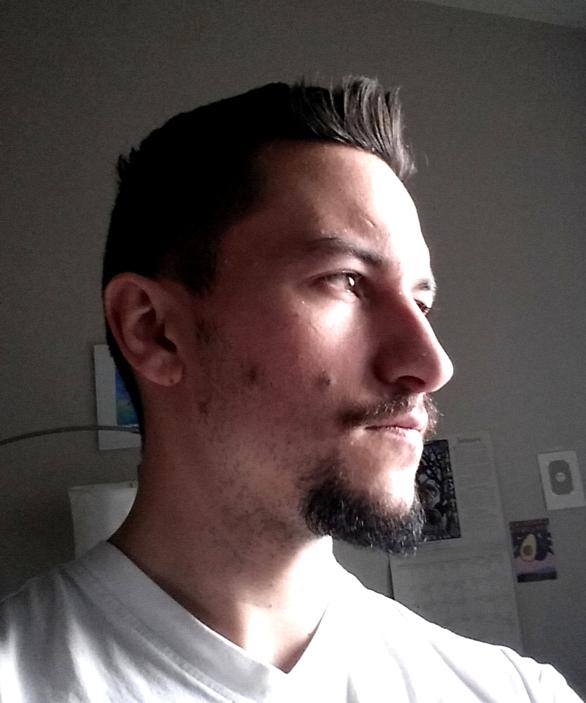I have seen several introductory posts by some of the newer members here, but aside from a simple 'hello', I find longwinded
greetings difficult to read or write (So I spoiler'd it). Instead, I would like to start off by introducing one of the problems I am
currently stuck with regarding game design.
I can't seem to finish a game, even though I have ideas, programming abilities, and have read/researched as much as possible.
Context/Personal Intro
[spoiler]Recently, I finally managed to fully realize why game development has been so painful over the last few years.
The last year or so, all thoughts related to game design were about trying to do things better. I would read plenty
of articles, hypothesize amazing game experiences, and (due to my programming experience) have a blast
thinking up the algorithms for those games. I kept learning about the ins-and-outs of algorithm design and
started to gain experience with a few of the practical foundations of game design. Among some important
things I learned were...
-Make loosely coupled code that "uses" each other via abstractions
-Abstractions are only beneficial if you have planned the black box out before (and thus know it's possible)
-Rigidbody dynamics are completely practical for platformers if you use the right math
With ambitious new mechanics in mind, I kept busy on projects while creating reuseable code pieces, and created
many small projects (still unfinished) using mechanics I had seen underused in most genres. But, while each of
these achievements brought slight satisfaction through their technical feats, none of them seemed to have any
long-term merit as a finished game. Finally, my attention started shifting (albiet still only partially) towards the idea
that games should not be treated merely as software, but as their own medium of entertainment.
The preliminary barriers have started to weaken (games are art, what is a game, how are games different), but
even though the mandatory elitism of other mediums has subsided, the fact remains that game design is one of
the most under-developed mediums in existence.
Game design as an art is proven, but not reliably understood. I will admit, it looks as if the film and literature
mediums don't have all that many recent examples of their so-called "mature art", but it can be easily proven
that aspiring writers and cinematographers have plenty of resources by making a quick google search, "how to XXX."
The number of specialized colleges for these people may not be exceedingly high, but the effects of several
millenia of writers have helped.
On the other hand, while the enthusiasm around games is huge, attempting to "grind" at learning game
design is met with a few exceptional books (A Theory Of Fun, Game Feel) and some useful community
resources (Forums, Extra Creditz), but then they are left to start from the same square-one as the last
generation, or fill their reading with the latest kinda design/kinda technical/kinda business "game design"
book. That being said, asking about how to learn game design faster is only the secondary purpose of
this post.
Even though many improvements to your coding style (for programmers), design practices, and development
workflows will gradually sharpen your skills, they can all be nullified by the unwillingness to follow-through.
Game designers will most likely always struggle with the tenacity required to finish a game, but for individual
reasons. Maybe you still have that nagging feeling that your projects are still just hobbies that won't amount
to anything, or maybe the development time turns out ten times longer than expected (not just maybe).[/spoiler]
(Basically, I figured out why I was having so much trouble.)
I can't work on a project unless I am entirely confident in what I am making.
My opinion of failure has always been moved upwards over time, but only in the logical part of my mind.
I can perform well enough on tasks where optimization isn't an issue, and exercising skills that I have mastered
is easy, but put me in front of any kind of artistic pallette, and each keystroke is imbued with the visions of being
just as unskilled in twenty years, and never having produced anything of worth to the industry.
I have made a (cursory) study upon this phenomena in other circles, but the best explanation comes from the
illustrative arts. When one learns about color theory, proportion, line style, and other concepts, they learn about
these both consciously and subconsciously (you don't know everything you understand). Unfortunately, most artists
achieve a much greater ability to distinguish the good from the bad than they have in their own skill to create. When
someone can always see flaws more often than they can fix them, satisfaction in their work becomes unattainable.
(If you know that your thing sucks, it's hard to follow through)
What I am asking is, how can I reduce the the pain of knowingly creating a commercial/personal failure?
(Or better yet, find a way to create something that isn't a failure)











